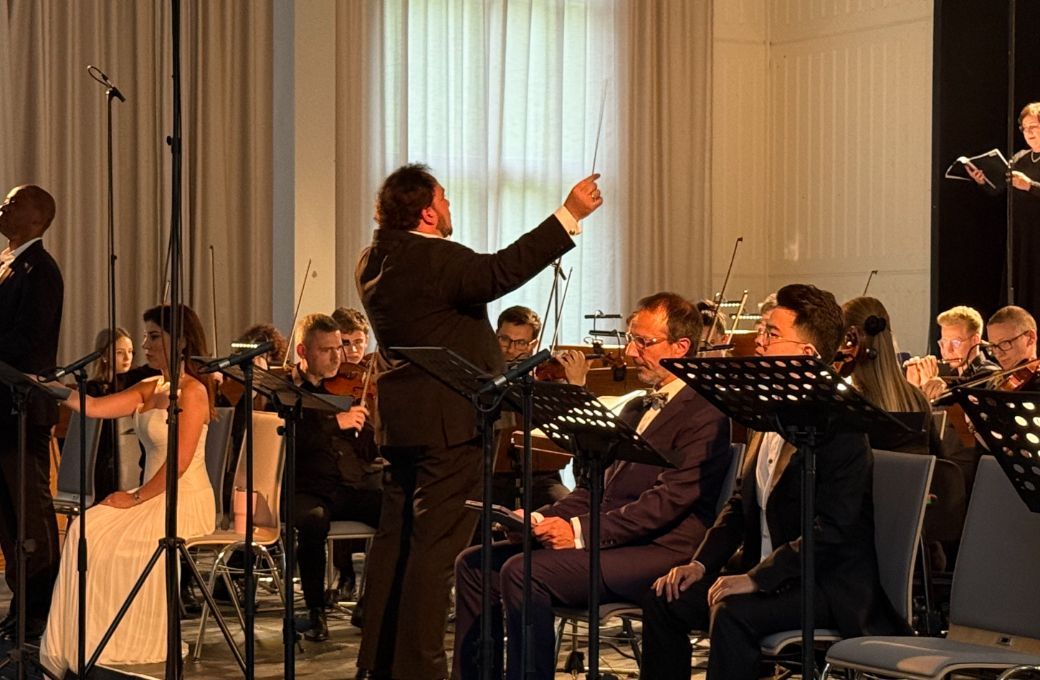In 1856, a small town in Baden-Württemberg was graced by the presence of one of the great cultural celebrities of the age, there to take the waters for which Bad Wildbad had become famous. It is said that the visit was sufficiently reinvigorating to restore the muses’ gifts back to the portly Italian, who returned to Paris for a final decade of composition. That celebrity was Gioachino Rossini, whose visit has been commemorated for nearly forty years by an annual festival, performing predominantly Rossini’s music, but also that of his peers. The Rossini in Wildbad festival is a neat younger sibling to the more famous Rossini Opera Festival in Pesaro; both are driven by a love of bel canto and draw attentive, loyal audiences.

Prince Józef Poniatowski was raised in Florence and initially had a successful career as a diplomat, including a posting to Paris – he later became a senator under Napoleon III and, like his imperial patron, ended up in Chislehurst, of all places, where he was buried. His great passion, though, was music, and across several decades Poniatowski composed a number of operas, the vast majority forgotten. Pierre de Médicis, a mid-career work, premiered to a warm reception in Paris in 1860 and was staged across Europe. It subsequently fell into total obscurity until rescue by the Festival of Polish Music in 2011. It’s a fascinating work; a French grand opéra in four acts, complete with the usual ballet, which is nonetheless composed very much in the bel canto tradition. Rossini’s influence is unmistakable, and both Donizetti and early Verdi are also there, making it feel rather retro in the way it bucks the contemporary trend in its prizing of a series of arias, duets and ensembles. It’s hard, in the absence of other performed works, to determine whether there’s an individual voice; instinctively one feels that Poniatowski belongs in the same group as Pacini and Mercadante – a master of the genre without that touch of genius that elevates the composer to the first tier.
That does not stop Pierre being tremendously good fun and, under the galvanising baton of José Miguel Pérez-Sierra, both the Kraków Philharmonic Orchestra and singers produced a rip-roaring account that made the strongest possible case for more regular performances. It’s essentially a love-triangle, between the historical Pierre (Piero de' Medici, nicknamed “the unfortunate/the stupid”), his brother Julien and Laura Salviati, whose uncle rather unhelpfully happens to be the scheming Grand Inquisitor, Fra Antonio. Throw in a bunch of soldiers, locals and nuns, and Poniatowski gives us a very 19th-century opera of romance-meets-politics.
The cast impressed. Patrick Kabongo displayed an appealing tenore di grazia as Pierre; his voice sits very comfortably in the higher register and he navigated top notes with ease and generosity. Diction was clear, with fragrant, idiomatic French, and he seemed almost totally off-book, a surprise given the rarity of the work. His duet with Nathanaël Tavernier’s Fra Antonio was the first highlight of the evening, the pale tenor an ideal contrast to Tavernier’s sepulchral bass. Tavernier displayed fine diction and registers totally integrated; his delivery – bordering on moustache-twirling – possibly strayed into the slightly melodramatic, but was fun to watch.
Laura provides the work’s one principal female role, which Claudia Pavone assumed with élan. I’m not convinced that her style of singing will necessarily lead to the longest of careers, but in Laura’s showpiece cabaletta “Doux rêve de ma vie”, Pavone produced soprano daring in its ventures into the higher register. Her coloratura is not the most beautiful, but it is effective, with some of her high notes given with great force. The Act 3 trio with Kabongo and Tavernier saw all three singers evenly balanced. César San Martín sang Julien with a rather stolid baritone, though he delivered a fine finale to Act 3. In the smaller role of Paolo Monti, Anle Gou gave an expressive, albeit tentative performance.
A few ragged moments from the brass aside, Pérez-Sierra drew a fine performance from the orchestra and an energetic chorus, maintaining vivid tempi throughout. I question the wisdom of performing the full ballet music; though pleasant – and well performed – it added little save a sense of completeness, interrupted the dramatic flow in a manner unhelpful in a concert performance and extended the performance considerably. One to save for a recording perhaps. Minor gripes aside, however, this was a deeply rewarding evening and it is to be hoped that specialist labels such as Opera Rara or Bru Zane take this voyage of discovery further.


